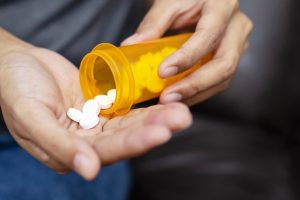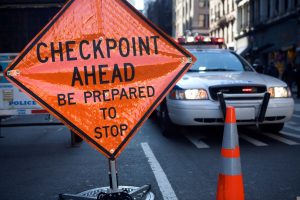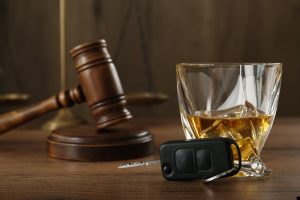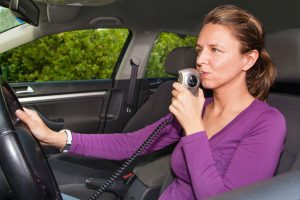When most people think about driving under the influence (DUI), they envision alcohol-related offenses. However, a growing trend in Florida and nationwide is the increasing number of DUI cases involving prescription medications. This shift represents a significant challenge for both law enforcement and drivers who may unknowingly find themselves facing serious criminal charges despite having valid prescriptions for their medications. If you’re arrested for DUI in Fort Lauderdale while allegedly under the influence of prescription medications, The Ansara Law Firm can help.
As millions of Americans rely on prescription medications for legitimate medical conditions, many are unknowingly putting themselves at risk of criminal charges simply by getting behind the wheel while taking their prescribed medications. This emerging trend represents a complex intersection of public health, personal responsibility, and criminal law that every Florida driver needs to understand. The stakes are high — a prescription drug DUI carries the same severe penalties as an alcohol-related DUI, but the legal landscape is far more nuanced and challenging to navigate.
A Growing Problem
Florida’s prescription drug crisis provides crucial context for understanding this trend. The state has been hit particularly hard by the opioid epidemic, with the Florida Department of Health reporting that opioid-related deaths have skyrocketed in recent years. While specific prescription drug DUI statistics are not readily available, the broader picture is concerning. In 2021, Florida experienced 5,940 fatalities due opioid overdoses, representing 76% of the state’s total drug overdose deaths — indicating the widespread use of these potentially impairing substances.
The scope of prescription drug use is staggering. According to national data, two-thirds of U.S. adults take prescription medications, with many taking multiple medications simultaneously.
Common prescription drugs that can impair driving include:
- Opioid pain relievers (OxyContin, Percocet, Vicodin)
- Benzodiazepines (Xanax, Valium, Ativan)
- Sleep medications (Ambien, Lunesta)
- Muscle relaxants (Soma, Flexeril)
- Antihistamines (Benadryl, prescription allergy medications)
- Antidepressants and mood stabilizers
What makes prescription drug DUIs particularly insidious is that many people don’t realize their medication can impair their driving ability, especially when taken as prescribed by their doctor.
How Florida Law Treats Prescription Drug DUIs
Under Florida Statute 316.193, driving under the influence encompasses more than just alcohol. Driving while impaired by drugs is illegal and subject to the same penalties as driving while impaired by alcohol. The law makes no distinction between illegal drugs and lawfully prescribed medications when it comes to impairment.
Florida’s DUI statute defines the offense as driving while:
- Under the influence of alcoholic beverages, any chemical substance, or any controlled substance to the extent that normal faculties are impaired, OR
- Having a blood-alcohol level of 0.08% or more
The critical difference here is that while alcohol DUIs have a specific legal threshold (0.08% BAC), prescription drug DUIs do not. Unlike alcohol-related DUIs, where the legal limit is a blood alcohol concentration (BAC) of 0.08%, DUI-Drug cases do not have a specific threshold for impairment. Instead, prosecutors must demonstrate that the driver was impaired to the extent that their normal faculties were affected.
This absence of a numerical threshold creates both challenges and opportunities in defending these cases, as we’ll explore below.
Key Differences Between Alcohol and Prescription Drug DUIs
1. Detection and Evidence Collection
As Fort Lauderdale DUI lawyers can explain, DUIs rely heavily on breathalyzer tests, which provide immediate, quantifiable results. Prescription drug DUIs present a more complex evidentiary picture. Typically, people under the influence of prescription or illegal drugs will not register an over-the-limit breath alcohol content level, unless they have also been drinking. Law enforcement officers are forced to establish that your normal faculties are impaired by using field sobriety tests.
Law enforcement must rely on:
- Field sobriety tests (which may be affected by medical conditions unrelated to drug use)
- Drug Recognition Expert (DRE) evaluations (specialized officers trained to detect drug impairment)
- Blood or urine tests (which can detect presence but not necessarily impairment)
- Officer observations (slurred speech, bloodshot eyes, erratic behavior)
2. Medical Necessity Defense
One of the most significant differences in prescription drug DUI cases is the potential for a medical necessity defense. Defendants may argue that they were taking medication as prescribed by their doctor and had no reason to believe it would impair their driving ability. This defense doesn’t exist in alcohol DUI cases. It is important, however, that the second element be met. If there was a clear warning not to drive on your medication bottle, this defense is harder to bring. Continue reading
 Fort Lauderdale Criminal Attorney Blog
Fort Lauderdale Criminal Attorney Blog







